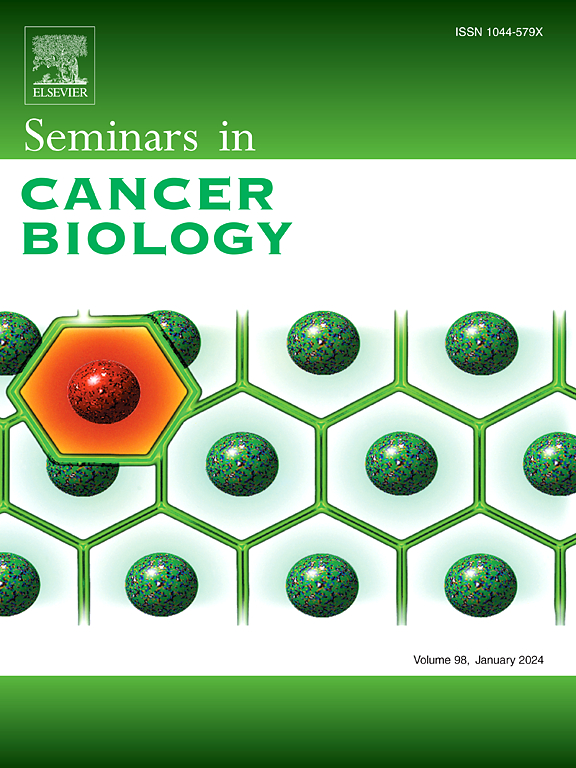治疗性胰腺癌生物标志物和药物遗传学。
IF 15.7
1区 医学
Q1 ONCOLOGY
引用次数: 0
摘要
FOLFIRINOX和吉西他滨加nab-紫杉醇是目前转移性胰腺癌患者最有效的化疗方案,但中位总生存期仍不到一年。药物基因组学和个体化治疗是一种很有前途的策略,包括识别毒性风险增加的患者。这篇综述总结了目前关于胰腺癌治疗反应的遗传变异和推测的生物标志物的知识,这些生物标志物不仅与金标准治疗方案(FOLFIRINOX、吉西他滨/nab-紫杉醇和nal-IRI/5-氟尿嘧啶)有关,而且与靶向治疗和免疫治疗有关。从已发表的资料来看,很明显,这个问题是高度复杂的,对药物敏感或耐药患者进行最终分析,然后进行个体化治疗,是改善胰腺癌患者不良预后的最有可能的方法。此外,我们将简要回顾从全基因组关联研究、在胰腺疾病研究(PANDoRA)等大型财团背景下进行的基因候选研究以及专注于DNA修复基因特定突变的研究中所学到的知识。本文章由计算机程序翻译,如有差异,请以英文原文为准。
Therapeutic pancreatic cancer biomarkers and pharmacogenetics
FOLFIRINOX and gemcitabine plus nab-paclitaxel represent the most effective chemotherapy regimens for metastatic pancreatic cancer patients nowadays, but the median overall survival remains less than one year. Pharmacogenomics and the individualization of therapy represent a promising strategy, including identifying patients at increased risk of toxicity. This review summarizes contemporary knowledge about genetic variability and putative biomarkers with published associations to therapy responses of pancreatic cancer not only for gold standard treatment regimens (FOLFIRINOX, gemcitabine/nab-paclitaxel and nal-IRI/5-fluorouracil) but also for other therapeutic options regarding targeted therapy and immunotherapy. From the published data reviewed, it is evident that the problem is highly complex, and the ultimate profile of the drug-sensitive or resistant patient, followed by individualized therapy, is the most probable way to improve the poor prognosis of pancreatic cancer patients. Additionally, we will give a brief recap of what has been learned from genome-wide association studies, from gene candidate studies carried out in the context of large consortia such as the Pancreatic Disease Research (PANDoRA) consortium, and from studies focused on specific mutations in DNA repair genes.
求助全文
通过发布文献求助,成功后即可免费获取论文全文。
去求助
来源期刊

Seminars in cancer biology
医学-肿瘤学
CiteScore
26.80
自引率
4.10%
发文量
347
审稿时长
15.1 weeks
期刊介绍:
Seminars in Cancer Biology (YSCBI) is a specialized review journal that focuses on the field of molecular oncology. Its primary objective is to keep scientists up-to-date with the latest developments in this field.
The journal adopts a thematic approach, dedicating each issue to an important topic of interest to cancer biologists. These topics cover a range of research areas, including the underlying genetic and molecular causes of cellular transformation and cancer, as well as the molecular basis of potential therapies.
To ensure the highest quality and expertise, every issue is supervised by a guest editor or editors who are internationally recognized experts in the respective field. Each issue features approximately eight to twelve authoritative invited reviews that cover various aspects of the chosen subject area.
The ultimate goal of each issue of YSCBI is to offer a cohesive, easily comprehensible, and engaging overview of the selected topic. The journal strives to provide scientists with a coordinated and lively examination of the latest developments in the field of molecular oncology.
 求助内容:
求助内容: 应助结果提醒方式:
应助结果提醒方式:


